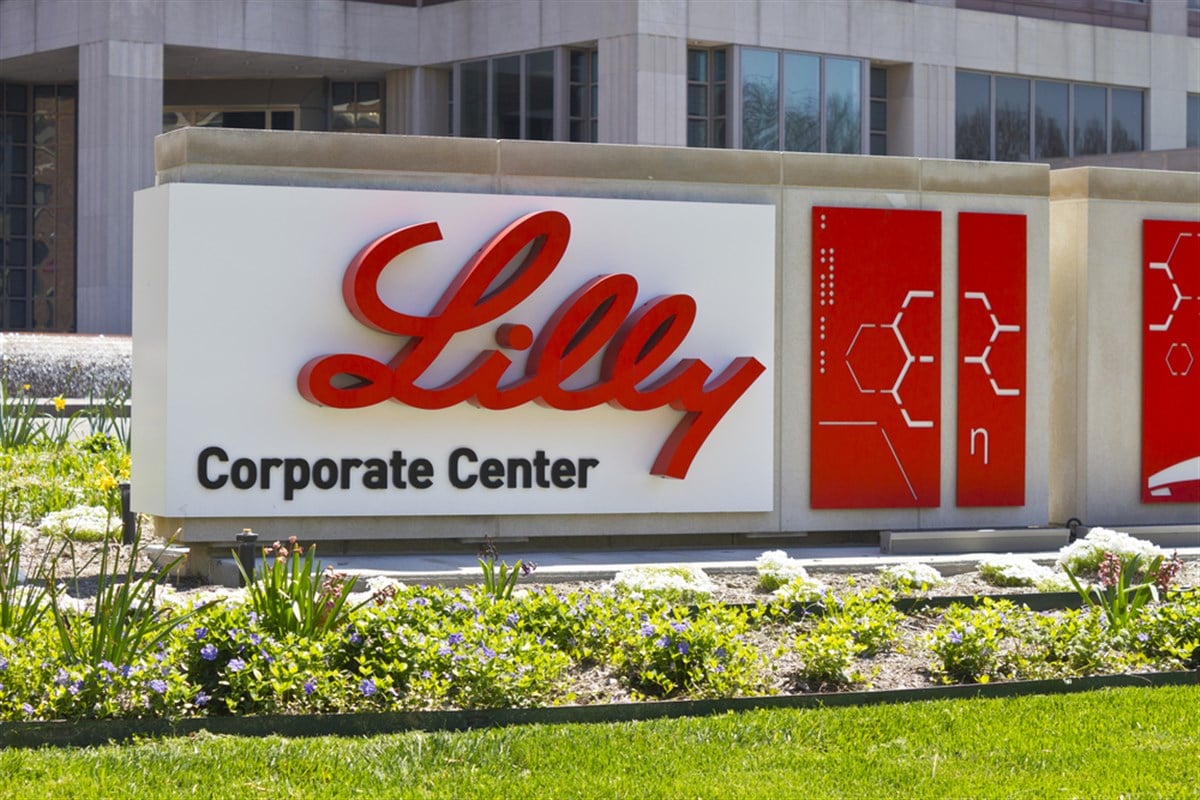
Nowadays, the market sends mixed signals to virtually every investor attempting to participate today, squeezing out a few percentage points of gains from the stock movements. With the Federal Reserve (Fed) proposing interest rate cuts this year and a FedWatch tool at the CME Group (NYSE: CME) now pushing the probability of them happening by May of this year, there are a lot of itchy fingers today.
Amid this uncertainty, some investment dollars may look to more "defensive" places like healthcare stocks and other stable sectors like the Consumer Staples Select Sector SPDR Fund (NYSEARCA: XLP). These areas include businesses relatively immune to the business cycle, as they will always provide needed products and services in every economic environment.
Eli Lilly and Company (NYSE: LLY) has been priced in for a triumphant earnings announcement this week, which could bring a surprise breakout in the stock price to come along with it.
During uncertain times, it is not only the stability of a sector that attracts investors but also a particular stock's ability to grow at above-average levels when the 10-year government bond can get you close to a 4% risk-free yield.
Money shifts on the table
When you break down the market's performance on a sector-to-sector basis, you will immediately notice that the Health Care Select Sector SPDR Fund (NYSEARCA: XLV) has delivered a near 12% underperformance against the broader S&P 500 index over the past 12 months.
This widening gap first appeared because 2023 preferred hyperbolic growth alongside artificial intelligence (AI) mentions during earnings calls. You can check out the massive rallies in NVIDIA Corp. (NASDAQ: NVDA) stock over the year, one that keeps breaking past all-time highs.
When markets aren't sure what could happen, the volatility index (VIX) tends to pop up, which it has done in the past week on FOMC talks. When this happens, many institutions follow a mandate to shift their money into low-beta stocks like Eli Lilly, which has outperformed the healthcare sector by as much as 95.2% over the past 12 months.
Markets are putting their money on the line, betting there is still room to move up. Analysts at Wells Fargo (NYSE: WFC) and Morgan Stanley (NYSE: MS) are also in the same boat, as they have boosted their price targets on the stock in the past month.
Other projections
Morgan Stanley upped its price target to $822 a share, showing a 23.3% upside from today's prices. For Wells Fargo, there is a set $700 target on the stock, calling for a near 5% upside.
These boosts may have come after analysts realized the potential of money shifts that could hit the industry with new investment inflows; however, markets beat them to the curb just as they do today. Eli shines while the large capitalization healthcare stocks should grow EPS by an average of 14.8% in the next year.
The same analysts that predict an attractive upside in the stock's valuation project up to 97% growth in EPS for the next year, significantly above the industry average, which is why markets are willing to pay a premium valuation for the stock today, as seen in its 51.6x P/E ratio, more than double the industry's 20.5x average.
Whereas worthy competitors like Pfizer Inc. (NYSE: PFE) could pose an argument for being considered in your watchlist, think about this. The market is discounting Pfizer stock by nearly 50% in its 12.2x P/E, and price action would show the stock at 61% of its 52-week high. Momentum has not favored Pfizer this year.
What about AstraZeneca PLC (NASDAQ: AZN)? The company could pose a decent alternative with its 21.9% upside off an $80 a share price target. Markets are not excited about this story, as they value it in line with the rest of the pack at its 16.0x P/E.
All in all, there must be a reason why, on a price-to-book basis, investors are willing to pay up to 54.2x for Eli Lilly's equity; the rest of the peer group trades for only 6.0x book.

